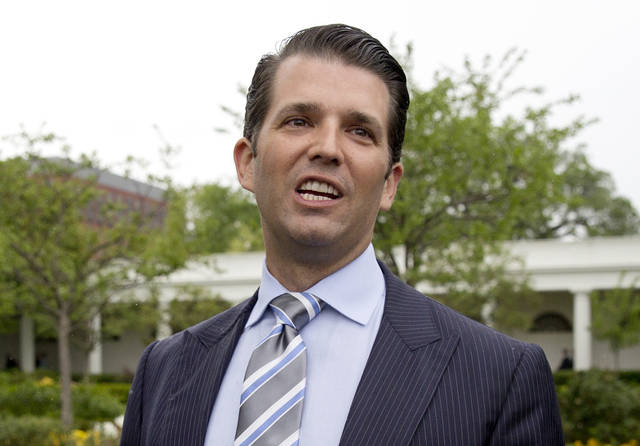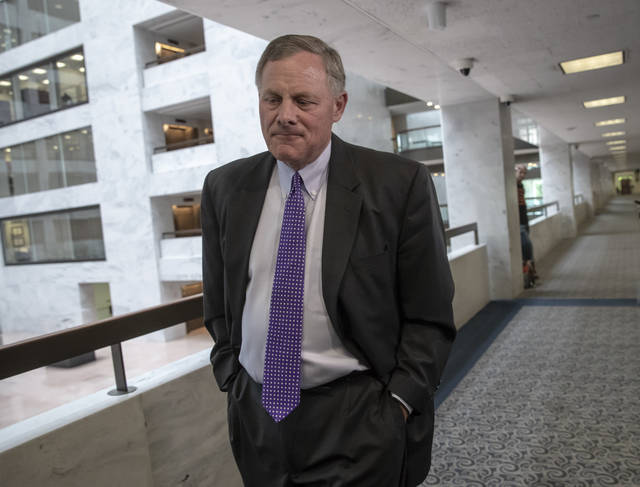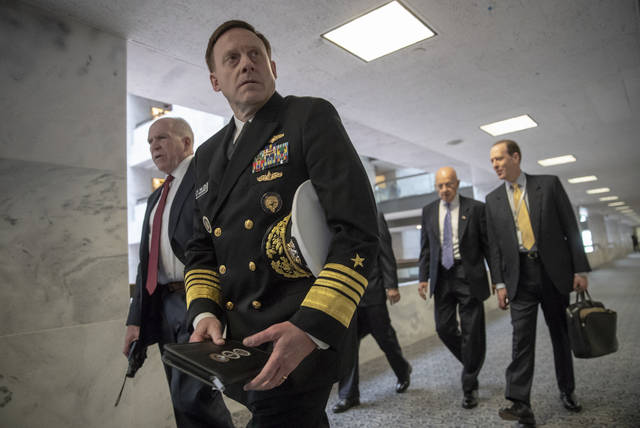Thousands of pages of documents on Trump Tower meeting are released



WASHINGTON — Six months after the June 2016 meeting at Trump Tower between Trump campaign officials and a self-described Kremlin informant, an intermediary contacted Donald Trump’s office asking for a follow-up, according to documents released Wednesday by a Senate committee.
WASHINGTON — Six months after the June 2016 meeting at Trump Tower between Trump campaign officials and a self-described Kremlin informant, an intermediary contacted Donald Trump’s office asking for a follow-up, according to documents released Wednesday by a Senate committee.
The intermediary, Rob Goldstone, told the Senate Judiciary Committee that he proposed a second meeting between Russian lawyer Natalia Veselnitskaya and members of Trump’s team in November 2016. He said he contacted Trump’s longtime executive assistant at the behest of Aras Agalarov, a Russia-based billionaire who knows President Vladimir Putin of Russia.
The follow-up overture is one of the kernels of new information contained in more than 2,000 pages of testimony and exhibits released by the committee, which has been conducting one of the investigations into the Trump campaign’s contacts with Russians.
The release of the records showed how far Republicans and Democrats on the committee have diverged since they first began the bipartisan inquiry last summer.
Republicans, who control the committee, declined to draw conclusions from their work, but described the documents as “the most complete public picture” yet that would allow Americans to determine what happened based on “unfiltered information.”
Democrats offered a starkly different assessment, repeatedly asserting that the investigation had been “limited” by Republicans more interested in accusations of FBI misconduct than Russian interference. Too many questions remain unanswered to draw conclusions, they said.
“We still do not know the full story about the June 9 meeting at Trump Tower or, more broadly, the degree to which the campaign cooperated or communicated with Russia,” they wrote in a summary of preliminary findings also made public.
The initial meeting was organized on the premise that Veselnitskaya would deliver incriminating information on Hillary Clinton to support Trump’s campaign.
The second session never took place. But the invitation shows the determination of Russians with close Kremlin connections to convince the Trump team that the Magnitsky Act, which imposed sanctions on a host of Russian officials for human rights abuses, was a mistake. The 2012 law, which froze the bank accounts of some Russian officials and barred them from entering the United States, infuriated Putin.
In a late November 2016 email to Trump’s assistant, Goldstone attached a three-page document marked “confidential” that called for “the launch of a congressional investigation into the circumstances of passing the Magnitsky Act.” He wrote that Agalarov hoped the document would be delivered to “the appropriate team.” Veselnitskaya also attacked the law in the June meeting.
The bulk of records released are transcripts of the committee’s interviews with that meeting’s participants, including the president’s son Donald Trump Jr., his son-in-law and senior adviser, Jared Kushner, and members of the Russian contingent led by Veselnitskaya. Most of them have already publicly described their version of events.
Nonetheless, the records reveal some new details about the players involved and what happened after the meeting was reported by The New York Times last summer. The transcripts highlight how lawyers for the Trump Organization tried to manage the fallout by coordinating the statement of Goldstone and others.
Donald Trump Jr. acknowledged that his father may have helped draft the statement that he put out to the press after the meeting became public.
But on a number of other questions, he drew a blank, including whether his father uses a blocked phone number. Phone records show that Donald Trump Jr. called a blocked number before and after calls with Agalarov arranging the meeting and again on the night of the meeting.
“I don’t,” Trump said when asked if he remembered who was on the other end of the calls. “I don’t know,” he said, when asked whether his father used a blocked number. He gave the same answer when asked if the initial offer of documents and information that would “incriminate” Clinton has alarmed him.
“I don’t know that it alarmed me, but like I said, I don’t know and I don’t know that I was all that focused on it at the time,” he said.
The transcripts also underscore how Agalarov previously tried to act as a bridge between the Kremlin and Trump. When Trump hosted the Miss Universe Pageant in Moscow in 2013, Agalarov sought to organize a meeting with Putin. But a top Kremlin aide called Trump to apologize, saying Putin could not see him because a tardy foreign leader had disrupted the Russian president’s schedule.
In July 2015, Goldstone emailed Trump’s longtime executive assistant, Rhona Graff, with an invitation to come to Moscow for Agalarov’s birthday.
Graff emailed back a few days later saying it would be difficult for Trump to make the party. Goldstone responded that same day: “I totally understand re: Moscow, unless maybe he would welcome a meeting with President Putin, which Emin would set up.”
The following January, Goldstone reached out again, this time touting his connection to a Russian social media platform, VK, and suggesting that Trump use it to appeal to Russian-American voters. In follow-up emails, Goldstone shared a mock-up of a VK page that he had the company create for Trump.
Dan Scavino, the campaign’s social media director, eventually responded, encouraging Goldstone to “send me whatever you have on this system! I will share it with the team.”
The committee tried to interview all the participants of the Trump Tower meeting. But Paul Manafort, the president’s former campaign chairman who is facing fraud and other criminal charges, declined to testify. Kushner gave the committee a statement and would not sit for an interview.
Veselnitskaya, who is close to Agalarov, initially insisted that she acted independently of the Russian government when she visited Trump Tower. But more recently, she has described herself as an informant for a top Kremlin official, Yuri Y. Chaika, Russia’s prosecutor general.
Other witnesses included Rinat Akhmetshin, a Russian-born Washington influence-peddler who has worked with Veselnitskaya for years; Irakly Kaveladze, who represented Agalarov; and Veselnitskaya’s translator, Anatoli Samochornov.
By all accounts, the meeting was a disappointment. The Trump campaign officials were disgruntled that Veselnitskaya’s disparaging information about Clinton amounted to no more than allegations of fraud in Russia by several obscure Democratic donors. At one point, Kaveladze testified, Kushner asked why they were there and “listening to that Magnitsky Act story?”
Goldstone, who said he expected Veselnitskaya to deliver a “smoking gun,” testified that on his way out the door, he told Donald Trump Jr: “This was hugely embarrassing.”
Veselnitskaya seemed unhappy that her message about the Magnitsky Act seemed to fall on deaf ears. “I know she was expecting something else from the meeting, something bigger,” her translator testified.
Manafort was so bored by Veselnitskaya’s presentation that he declared it uninteresting and spent much of the meeting tapping on his phone, according to Samochornov.
The committee released a single page of notes that Manafort took during the meeting. They consisted of a cryptic list of 11 topics, including an incomplete word, “Illici.” Manafort also noted “Offshore — Cyprus,” “133m shares,” “Companies,” “Not invest — loan,” and “Active sponsors of RNC.”
Two other congressional committees have also mounted investigations into Russia’s interference in the electoral process. The House Intelligence Committee ended its inquiry last month without any consensus. Democrats and Republicans were fiercely at odds over what the evidence showed and whether the inquiry was cut short for political reasons.
The Senate Intelligence Committee’s investigation is still ongoing and has largely been bipartisan, but it appears unlikely to produce major new revelations as it releases a series of reports in the coming months.
© 2018 The New York Times Company


